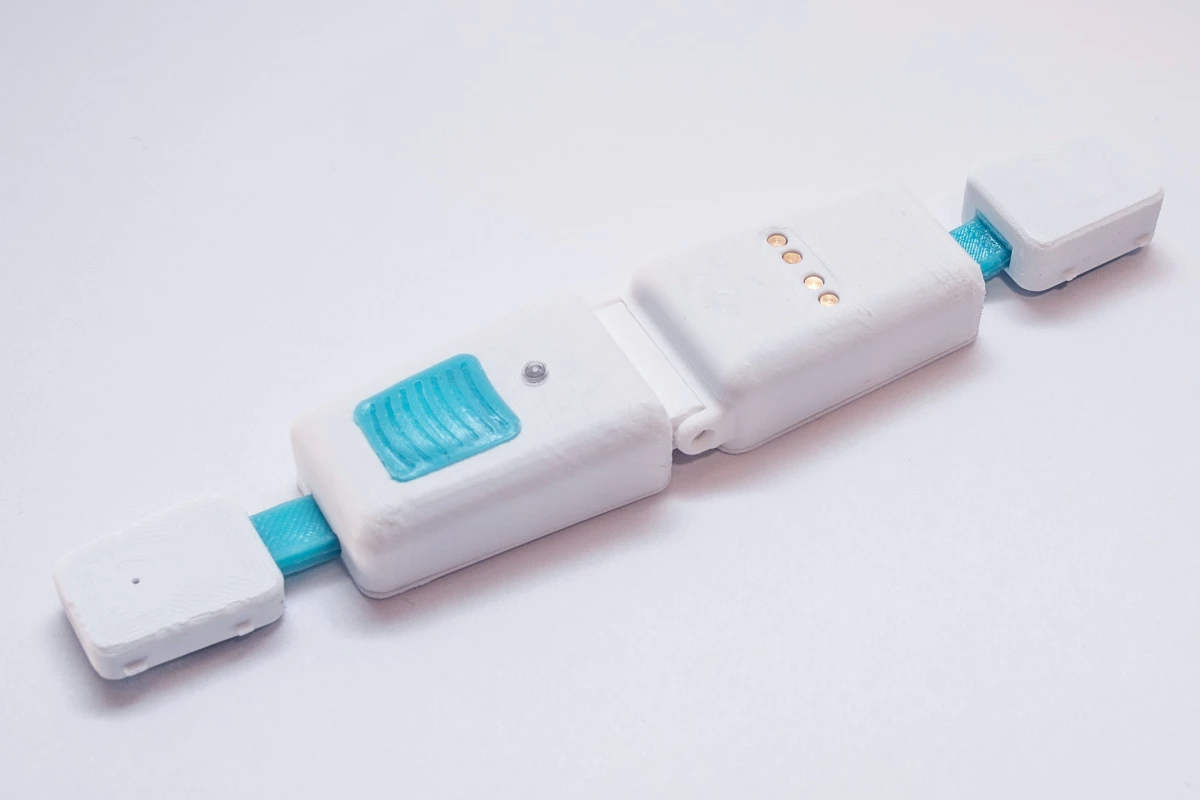When a respiratory patient's COPD flares up, the outcome can be highly debilitating – potentially even fatal. A new wearable known as the Sylvee is claimed to detect such exacerbations early, so they can be dealt with before it's too late.
Currently in functional prototype form, the device is being developed by California-based startup Samay. It's named after CEO Dr. Maria Artunduaga's grandmother, Sylvia, who died of COPD (chronic obstructive pulmonary disease) complications.
The wearable gets taped to the patient's chest, where it continuously monitors the acoustic resonance of the lungs as the person goes about their daily routine. It's wirelessly linked to an accompanying app on the user's smartphone or tablet, which utilizes AI-based algorithms to analyze the received signal.

If the device detects the telltale sound of "air trapping" as the patient breathes, it sounds an alert via the app. Air trapping is a condition is which air doesn't leave the lungs as the person exhales. It's strongly linked to COPD exacerbations, and importantly, it typically begins up to several days before other symptoms appear.
The Sylvee was recently the subject of a clinical trial, in which the device was worn by 110 volunteers who were either healthy, asthmatic, or had COPD. As compared to pulmonary function testing – which has to be conducted in a hospital, using expensive equipment – the Sylvee was found to be 83% accurate at the detection of air trapping. That figure should improve as the technology is developed further.
The device is still awaiting FDA approval, so it's not yet commercially available. Prospective users can register for updates via the Samay website.
Source: Samay





